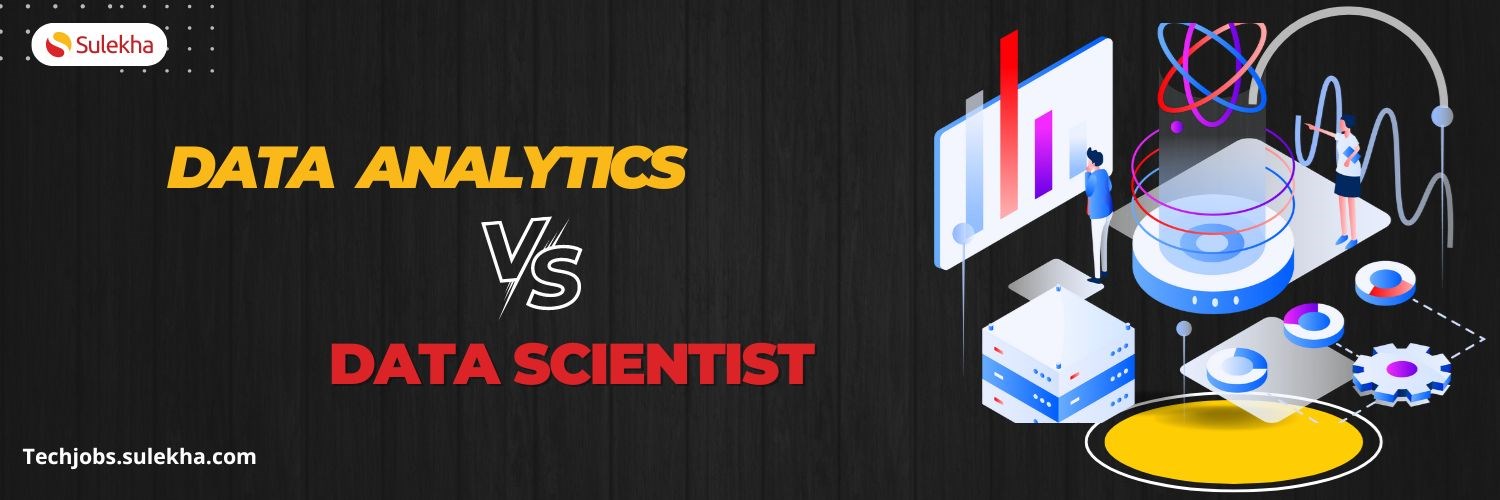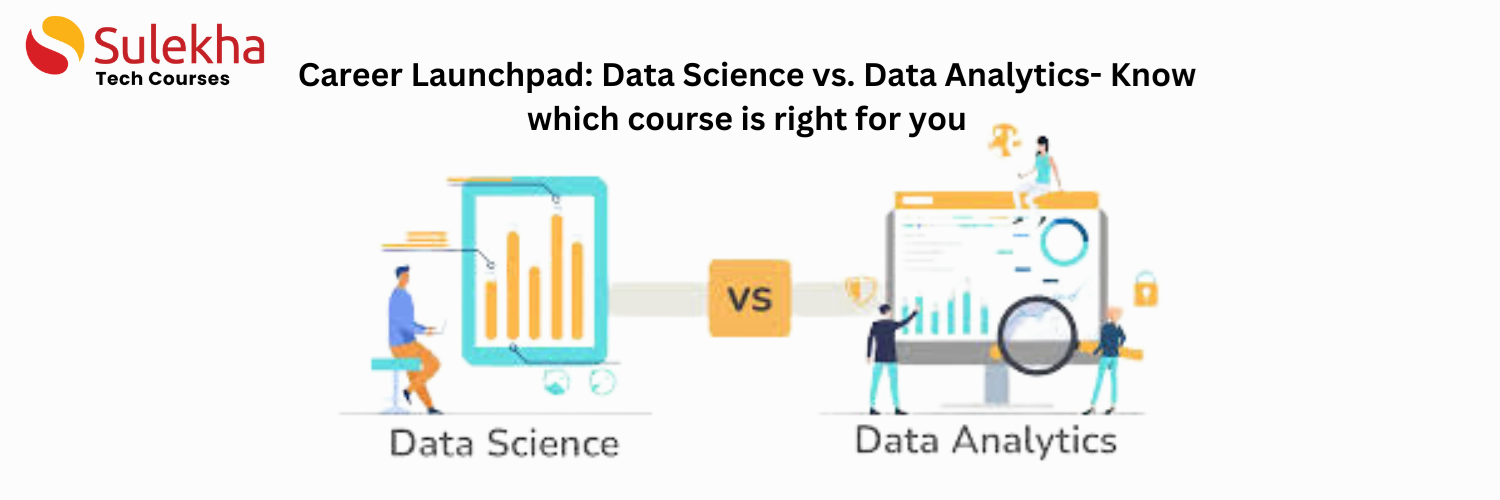Why Pursue Data Science Training?

Why Pursue Data Science Training?
In today's rapidly evolving world, data is the new oil. It's everywhere, and its volume is growing exponentially. In fact, it's estimated that 90% of the world's data has been created in the last two years alone, with an expected growth to 175 zettabytes by 2025. But raw data, on its own, isn't valuable. Its true power lies in the ability to extract meaningful insights, predict future trends, and drive informed decisions. This is where data science comes in, transforming complex datasets into actionable strategies.
Here's why investing in data science training is not just beneficial, but essential for your career growth and organizational success:
Unlocking Career Opportunities in a High-Demand Field
The demand for skilled data professionals is skyrocketing across every industry. From tech giants to healthcare, finance, retail, and manufacturing, organizations are actively seeking individuals who can make sense of their data.
Example: According to a report by LinkedIn, Data Scientist was consistently ranked as one of the most in-demand jobs for several years, with a reported talent shortage of over 150,000 data professionals in the US alone. Similarly, Glassdoor has consistently ranked "Data Scientist" as one of the "Best Jobs in America" based on factors like job satisfaction, salary, and number of job openings.
By acquiring data science skills, you position yourself for a wide array of exciting and well-compensated roles, including:
Data Scientist: The core role, responsible for analyzing complex data, building predictive models, and communicating insights.
Machine Learning Engineer: Focusing on developing and deploying machine learning models.
Data Analyst: Extracting and interpreting data to identify trends and create reports.
Business Intelligence Developer: Designing and maintaining systems that convert data into actionable business insights.
AI Engineer: Working with artificial intelligence technologies to solve complex problems.
Driving Informed Decision-Making
Data science isn't just about crunching numbers; it's about empowering better decisions. With the ability to analyze vast amounts of information, you can:
Identify hidden patterns and trends: Uncover insights that might otherwise go unnoticed, leading to new opportunities or solutions.
Example: A retail company using data science can analyze purchasing patterns to discover that customers who buy diapers also frequently buy beer. This non-obvious correlation (often cited as "diapers and beer") allows them to optimize store layouts or promotional strategies for increased sales.
Predict future outcomes: Forecast sales, anticipate customer behavior, or predict equipment failures, allowing for proactive strategies.
Example: In finance, banks use data science models to predict credit risk. By analyzing a customer's financial history, income, and other relevant data points, they can accurately assess the likelihood of loan default, leading to more responsible lending practices and reduced losses.
Optimize processes: Improve efficiency, reduce costs, and enhance performance across various business functions.
Example: Logistics companies use data science to optimize delivery routes, considering factors like traffic, weather, and delivery windows. Amazon, for instance, uses sophisticated algorithms to plan millions of deliveries daily, significantly reducing fuel consumption and delivery times.
Personalize experiences: Tailor products, services, and marketing efforts to individual customer needs, boosting satisfaction and loyalty.
Example: Streaming services like Netflix use data science to recommend movies and shows based on your viewing history, ratings, and preferences, leading to higher user engagement and retention. Their recommendation engine is estimated to save them over $1 billion annually by reducing churn.
Mitigate risks: Detect anomalies and potential threats before they escalate, protecting assets and reputation.
Example: Cybersecurity firms employ data science to detect fraudulent activities or unusual network behavior in real-time. By analyzing vast streams of data, they can identify patterns indicative of a cyberattack much faster than manual methods, preventing significant financial losses or data breaches.
Staying Ahead in a Data-Driven World
The world is becoming increasingly data-centric. Businesses that leverage data effectively gain a significant competitive edge. By undergoing data science training, you:
Become a valuable asset: You'll be equipped with the skills to help organizations navigate the complexities of big data and extract maximum value from it.
Enhance problem-solving abilities: Data science provides a systematic approach to breaking down complex problems and finding data-backed solutions.
Foster innovation: The insights derived from data can spark new ideas, lead to the development of innovative products and services, and drive organizational growth.
Example: The development of self-driving cars heavily relies on data science and machine learning. Companies like Tesla and Waymo collect massive amounts of sensor data to train their AI models, enabling the continuous improvement and innovation of autonomous driving technology.
Future-proof your career: As technology continues to advance, data science skills will remain at the forefront of innovation, ensuring long-term career relevance.
Developing Essential Skills
Data science training provides a comprehensive skill set that extends beyond just technical expertise. You'll develop proficiency in:
Programming Languages: Such as Python and R, essential for data manipulation, analysis, and model building. Python, for instance, boasts a vast ecosystem of libraries like Pandas, NumPy, and Scikit-learn, making it a powerhouse for data science.
Statistical Analysis: Understanding statistical concepts is crucial for interpreting data and drawing valid conclusions. You'll learn to apply concepts like hypothesis testing, regression, and classification.
Machine Learning: Learning algorithms and techniques for predictive modeling and pattern recognition, including supervised and unsupervised learning methods.
Data Visualization: Creating compelling visual representations of data to communicate insights effectively using tools like Matplotlib, Seaborn, or Tableau.
Communication and Storytelling: The ability to translate complex data findings into clear, actionable narratives for diverse audiences, from technical teams to non-technical stakeholders.
Problem Formulation: Defining business problems in a way that can be addressed with data science techniques.
Embarking on a data science journey is an investment in your future. It's about acquiring the knowledge and tools to transform data into intelligence, drive innovation, and unlock a world of possibilities in a field that's continually shaping our future.
Find a course provider to learn Data Science
Java training | J2EE training | J2EE Jboss training | Apache JMeter trainingTake the next step towards your professional goals in Data Science
Don't hesitate to talk with our course advisor right now
Receive a call
Contact NowMake a call
+1-732-338-7323Take our FREE Skill Assessment Test to discover your strengths and earn a certificate upon completion.
Enroll for the next batch
Data Science-Python-ML-AI-Deep Learning (Hands-on Training)
- Jan 28 2026
- Online
Data Science-Python-ML-AI-Deep Learning (Hands-on Training)
- Jan 29 2026
- Online
Data Science-Python-ML-AI-Deep Learning (Hands-on Training)
- Jan 30 2026
- Online
Related blogs on Data Science to learn more

Data Science in 2026: The Hottest Skill of the Decade (And How Sulekha IT Services Helps You Master It!)
Data Science: The Career that’s everywhere—and Nowhere Near Slowing Down "From Netflix recommendations to self-driving cars, data science is the secret sauce behind the tech you use every day. And here’s the kicker: The U.S. alone will have 11.5 mill

Confidence Intervals & Hypothesis Tests: The Data Science Path to Generalization
Learn how confidence intervals and hypothesis tests turn sample data into reliable population insights in data science. Understand CLT, p-values, and significance to generalize results, quantify uncertainty, and make evidence-based decisions.

Overview of data analytics VS data scientist
"Discover the key differences between data analytics and data science, explore top courses, job roles, salary expectations, and essential tools to build a successful career in these fields."

Career Launchpad: Data Science vs. Data Analytics- Know which course is right for you
Discover the key differences between Data Science and Data Analytics to choose the right course for your career. Explore roles, curriculum, salaries, and future prospects in this comprehensive guide.

What are Algorithms?
Discover the fundamentals of algorithms and data structures, their characteristics, types, and their crucial role in problem-solving and programming efficiency.

TEN ENTRY LEVEL JOBS IN IT FOR FRESHERS
Explore ten entry-level IT jobs for freshers, including roles like Help Desk Technician and Cloud Engineer, that require no prior experience but foundational IT knowledge. Discover exciting career paths in the technology sector that offer growth and

What is statistics?
Discover the basics of statistics, including its major types—descriptive and inferential—and their importance in data analysis and prediction.

Twelve High Paying Jobs in New York City
Uncover twelve high-paying jobs in New York City, including roles like data scientist and public relations manager. Learn about their responsibilities and salary ranges.

What is Linear Algebra?
Discover the importance of linear algebra in various fields like data science, economics, and medicine. Understand its applications and why it's an essential skill for students and professionals alike.

TEN ENTRY LEVEL JOBS IN IT FOR FRESHERS
Discover ten entry-level IT jobs perfect for freshers, offering exciting career opportunities and a pathway to success in the tech industry.
Latest blogs on technology to explore

Drug Safety & Pharmacovigilance: Your 2026 Career Passport to a Booming Healthcare Industry!
Why This Course Is the Hottest Ticket for Science Grads & Healthcare Pros (No Lab Coat Required!)" The Exploding Demand for Drug Safety Experts "Did you know? The global pharmacovigilance market is set to hit $12.5B by 2026 (Grand View Research, 202

Launch Your Tech Career: Why Mastering AWS Foundation is Your Golden Ticket in 2026
There’s one skill that can open all those doors — Amazon Web Services (AWS) Foundation

Data Science in 2026: The Hottest Skill of the Decade (And How Sulekha IT Services Helps You Master It!)
Data Science: The Career that’s everywhere—and Nowhere Near Slowing Down "From Netflix recommendations to self-driving cars, data science is the secret sauce behind the tech you use every day. And here’s the kicker: The U.S. alone will have 11.5 mill

Salesforce Admin in 2026: The Career Goldmine You Didn’t Know You Needed (And How to Break In!)
The Salesforce Boom: Why Admins Are in Crazy Demand "Did you know? Salesforce is the 1 CRM platform worldwide, used by 150,000+ companies—including giants like Amazon, Coca-Cola, and Spotify (Salesforce, 2025). And here’s the kicker: Every single one

Python Power: Why 2026 Belongs to Coders Who Think in Python
If the past decade was about learning to code, the next one is about coding smarter. And in 2026, the smartest move for any IT enthusiast is learning Python — the language that powers AI models, automates the web, and drives data decisions across ind

The Tableau Revolution of 2025
"In a world drowning in data, companies aren’t just looking for analysts—they’re hunting for storytellers who can turn numbers into decisions. Enter Tableau, the #1 data visualization tool used by 86% of Fortune 500 companies (Tableau, 2024). Whether

From Student to AI Pro: What Does Prompt Engineering Entail and How Do You Start?
Explore the growing field of prompt engineering, a vital skill for AI enthusiasts. Learn how to craft optimized prompts for tools like ChatGPT and Gemini, and discover the career opportunities and skills needed to succeed in this fast-evolving indust

How Security Classification Guides Strengthen Data Protection in Modern Cybersecurity
A Security Classification Guide (SCG) defines data protection standards, ensuring sensitive information is handled securely across all levels. By outlining confidentiality, access controls, and declassification procedures, SCGs strengthen cybersecuri

Artificial Intelligence – A Growing Field of Study for Modern Learners
Artificial Intelligence is becoming a top study choice due to high job demand and future scope. This blog explains key subjects, career opportunities, and a simple AI study roadmap to help beginners start learning and build a strong career in the AI

Java in 2026: Why This ‘Old’ Language Is Still Your Golden Ticket to a Tech Career (And Where to Learn It!
Think Java is old news? Think again! 90% of Fortune 500 companies (yes, including Google, Amazon, and Netflix) run on Java (Oracle, 2025). From Android apps to banking systems, Java is the backbone of tech—and Sulekha IT Services is your fast track t